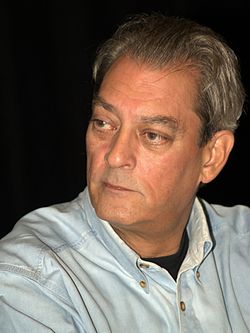Paul Auster Quote
The difference was not that one was a pessimist and the other an optimist, it was that one's pessimism had led to an ethos of fear, and the other's pessimism had led to a noisy, fractious disdain for Everything-That-Was. One shrank, the other flailed. One toed the line, the other crossed it out. Much of the time they were at loggerheads, and because Willy found it so easy to shock his mother, he rarely wasted an opportunity to provoke an argument. If only she'd the wit to back off a little, he probably wouldn't have been so insistent about making his points. Her antagonism inspired him, pushed him into ever more extreme positions, and by the time he was ready to leave the house and go off to college, he had indelibly cast himself in his chosen role: as malcontent, as rebel, as outlaw poet prowling the gutters of a ruined world.
The difference was not that one was a pessimist and the other an optimist, it was that one's pessimism had led to an ethos of fear, and the other's pessimism had led to a noisy, fractious disdain for Everything-That-Was. One shrank, the other flailed. One toed the line, the other crossed it out. Much of the time they were at loggerheads, and because Willy found it so easy to shock his mother, he rarely wasted an opportunity to provoke an argument. If only she'd the wit to back off a little, he probably wouldn't have been so insistent about making his points. Her antagonism inspired him, pushed him into ever more extreme positions, and by the time he was ready to leave the house and go off to college, he had indelibly cast himself in his chosen role: as malcontent, as rebel, as outlaw poet prowling the gutters of a ruined world.
Related Quotes
About Paul Auster
